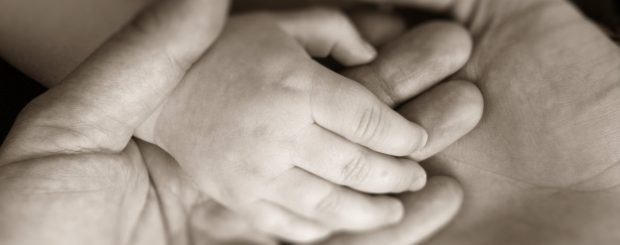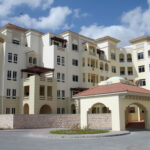Giving Birth in Dubai as an Expat Explained in 9 Easy Steps
Although the prospect of giving birth in a country different from one’s own may be intimidating, you shouldn’t feel overwhelmed. Here is an outline of the steps you need to complete in order to give birth in Dubai as an expat.
Step 1 – From the beginning
Are you pregnant? Make sure that you are married. In order to deliver a baby in Dubai’s hospitals, you must be married.
You’ll be asked for the original and a copy of your marriage certificate when you open a maternity file at any hospital in Dubai.
Step 2 – Medical coverage
Make sure that your medical insurer provides maternity coverage, and check to see how much is provided. It may be possible to request a coverage upgrade if maternity coverage is not provided.
The cost of prenatal services and giving birth is upwards of 6000 AED in government (public) hospitals. In private hospitals, there is a wide range of maternity packages ranging from 6000 AED to over 22,000 AED.
Step 3 – Find an OB-GYN
It is crucial to choose an obstetrician and gynecologist (Ob-gyn) who is sensitive to your needs. Make a list of your expectations and don’t settle for a doctor until you are confident that they’ll give you the best advice possible.
An Ob-gyn is trained to deliver babies, but where you decide to deliver in Dubai may affect whether or not your Ob-gyn will be in attendance.
At some hospitals, the mother is assigned a “team” to assist with delivery. Consider your preference, and consult the Ob-gyn who you decide to see during the course of your pregnancy.
Step 4 – Collect the documents needed to open a maternity file
You’ll need the following:
- Valid Health Card (for expectant mother)
- Marriage Certificate (original and copy)
- Passports and copy (both husband and wife)
- Residency visa and copy (both husband and wife)
Step 5 – Choose a hospital
Government versus private hospitals
Decide where to open a maternity file. Check that hospital’s policy regarding whether or not the husband can stay the night in the hospital with the mother, and whether or not the husband can stay after official visiting hours. Not all hospitals in the UAE allow this.
Private hospitals offer private rooms and suites, while government hospitals generally do not.
Although Emiratis use government hospitals, the doctors and medical staff do speak English at both government and private hospitals. Generally, the care is as good in government hospitals as in private ones.
Payment for maternity packages is generally required in advance, so it is worthwhile to check.
Government Hospitals
Maternity packages in government (public) hospitals cost around 2500 AED for twelve visits and associated tests. The charge for delivering a baby is 700 AED (double this amount if you are having twins) and extra charges apply for private rooms, extra nights in the hospital, and any complications.
The total cost is more likely to be around 6000 AED.
Latifa Hospital is a Women and Children’s hospital with a 34-bed Neonatal Intensive Care Unit (NICU). Classified III B by the American Academy of Paediatrics, it is the highest level NICU for newborns in the UAE. Latifa Hospital provides the only neonatal surgery center in Dubai.
Dubai Hospital also has an obstetrics department offering pre and post-natal care, as well as an NICU unit.
Private Hospitals
American Hospital Dubai is a popular choice among expats. Maternity packages here cost 11,950 AED with two days’ stay. Extra fees are charged for epidural anesthesia (3,770 AED) vaccinations, circumcision, and neonatal (NICU) care. There is an extra charge for any visitor who stays in the mother’s room.
Al Zahra Hospital Dubai offers many specialized maternity care packages, as well as options for VIP rooms and parenting classes. The cost to deliver at Al Zahra hospital is upwards of 4000 AED.
Mediclinic Welcare Hospital Dubai has a dedicated maternity complex with four delivery rooms and 16 NICU beds. There are many options available, from 12 and 28-week antenatal packages and delivery packages.
Step 6 – Birthing preferences
Make a list of expectations regarding your birth preferences. Ensure that you have a support system in place. For some, the thought of giving birth in the absence of friends and family can be daunting. It is for this reason that doulas are available to provide consultation, support, and advocacy during the birth and afterwards.
If you like, consult a doula such as Dubai Doulas to help you articulate your preferences. Home birth and water birth techniques are not performed in Dubai.
Vaccinations are given after birth and in the first months. You’ll receive a vaccination schedule. Generally, these will be paid for by the parents until the baby has his or her own health insurance (the residency visa is needed to get the health insurance – see below).
The vaccination charges are not usually applied to the mother’s health insurance, although this should be confirmed with the health insurer.
Step 7 – Register baby’s birth
Baby Steps Dubai will provide door-to-door service to assist with obtaining baby’s documentation, including birth certificates in English and Arabic, baby’s residency visa, and the documents needed for baby’s passport.
Baby Steps Dubai comes highly recommended, and is the best option for dealing with the high volumes of bureaucracy and paperwork involved in getting a residency visa for baby.
If you would prefer to register the birth yourself, you’ll need the “notification of birth certificate” in Arabic, issued by the hospital where you gave birth. All expatriates must get the Arabic version translated into English, and then both the Arabic and English certificate attested by the Ministry of Health (at Al Baraha Hospital) and Ministry of Foreign Affairs.
How to do this is on the Government of Dubai Website.
Documents Required:
- Original + copy of parents’ passports with residence permits
- Copy of attested marriage certificate
- Discharge summary from the hospital for mother and child
- Notification of birth (from the hospital where baby was delivered)
Step 8 – Get baby a passport
You’ll need a passport for your baby so that you can apply for his or her residency visa. As the baby’s sponsor, if you do not have a residency visa for the baby after 120 days, then there will be a 100 AED fine for each day over 120 days.
Moreover, the baby will not be allowed to leave the UAE.
Some countries provide a one-year passport so that a new baby can travel. Check the procedure for obtaining a baby’s passport for your country of nationality.
For many western countries, it is necessary to get a citizenship document before the passport is issued. It is important to start the process for obtaining citizenship documentation and a passport immediately, because the passport is needed for the residency visa and Emirates ID card.
Step 9 – Get baby a residence visa and Emirates ID Card (EID)
In order to apply for your child’s residency visa, you’ll need
- Your baby’s birth certificate (attested as in Step 7)
- Your baby’s passport
- Three passport sized photos of baby, with his or her eyes open
- Both parents’ original passports and valid UAE residence visas
- Parents’ original marriage certificate as attested by the Ministry of Foreign Affairs in the UAE, and a copy
- The Birth Notification (given out by the hospital where baby was delivered, with the hospital’s stamp on it)
- A copy of the job contract and salary certificate of the baby’s sponsor
- The sponsor’s tenancy contract attested in Dubai’s Land Department
- An application form, typed
- Copies of both parents’ Emirates IDs
More information about obtaining baby’s residency visa is at the Directorate of Residency and Foreign Affairs – Dubai, or use Baby Steps to alleviate the hassle. It will cost around 2000 AED for Baby Steps to get your baby’s residence visa and EID cards delivered to your home in Dubai, in around a week.








